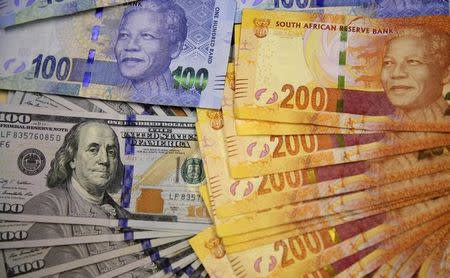Business
South Africa risks losing title as Africa’s largest economy amid slow growth and rising competition

South Africa risks losing top spot as Africa’s largest economy
For decades, South Africa has worn the crown as Africa’s biggest economy. But if current trends continue, that title could soon be handed over to Nigeria — or even another fast-rising contender.
The International Monetary Fund (IMF) has kept South Africa’s 2025 growth forecast locked at a sluggish 1%, while revising upward the outlook for several other sub-Saharan African economies. It’s a sobering sign that, while much of the continent is powering ahead, South Africa is being left behind.
The warning signs are clear
Azar Jammine, chief economist at Econometrix, says the latest IMF forecast is essentially a caution flag for investors. Countries like Nigeria, Kenya, and Ghana are pushing pro-business reforms and attracting fresh investment. Nigeria, in particular, is now expected to grow by close to 4% — quadruple South Africa’s forecast.
In contrast, South Africa’s economy is stuck in first gear, weighed down by trade penalties, logistical bottlenecks, and a business environment many consider stifling.
Tariffs, crime, and the ‘golden triangle’ problem
One of the biggest hits has come from a new 30% tariff on certain South African exports to the United States, particularly in the automotive and agricultural sectors — a blow for citrus and table grape producers. While these industries are small in the broader economic picture, the potential for job losses is real.
But Jammine warns the deeper issues go beyond tariffs. Persistent high crime levels and allegations of corruption in leadership have damaged investor confidence. Criminal syndicates, he says, are now one of the biggest drags on growth.
Then there’s South Africa’s “golden triangle” of power: heavy government involvement, dominant state-owned enterprises, strong trade unions, and a few large businesses controlling much of the economy. The result? Small businesses struggle to access credit or cut through red tape, stifling job creation.
While others open doors, South Africa stalls
Across much of Africa, governments are loosening their grip and encouraging entrepreneurial growth. In countries like Kenya and Ghana, small businesses thrive and innovation is encouraged. In South Africa, bureaucracy still rules the game.
IMF figures show sub-Saharan Africa’s overall growth is forecast at 4% this year and 4.3% next year — more than four times South Africa’s expected pace. For the first time in years, the regional growth gap is not narrowing, it’s widening.
Public reaction: frustration and fatigue
On social media, South Africans have reacted with a mix of frustration and resignation. Some blame policy paralysis and entrenched political interests, while others fear the knock-on effects for jobs, investment, and the country’s global standing.
“It’s like watching the Springboks not even show up for the World Cup,” one user wrote on X (formerly Twitter). “We’re being outplayed before the game even starts.”
A pivotal moment
The reality is that South Africa’s crown as Africa’s largest economy is no longer secure. Without bold reforms to improve logistics, tackle crime, and free up small businesses, the title could soon belong to someone else.
As Jammine points out, other African countries are not just catching up — they’re overtaking. And once that happens, winning back the top spot may be far harder than many realise.
Source:Business Tech
Follow Joburg ETC on Facebook, Twitter , TikTok and Instagram
For more News in Johannesburg, visit joburgetc.com















